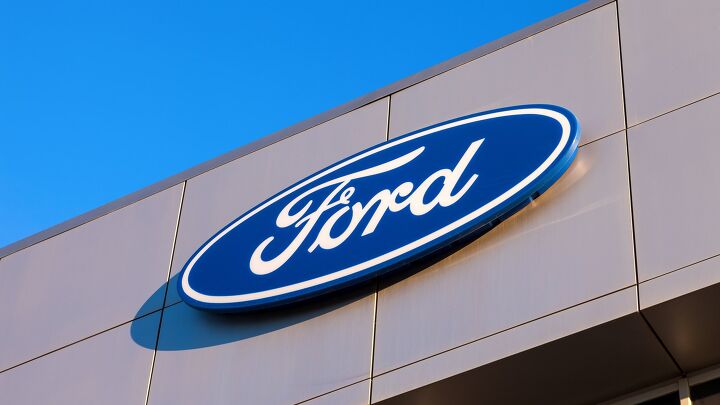Most Ford Dealers Sign on for Big EV Investments

The transition to EVs is a big deal, not just for automakers but for their dealers. Training, product marketing, and service are all enormous obstacles for dealers to overcome to sell and support electric vehicles effectively. General Motors offered to buy out Buick dealers that weren’t willing to put in the time and, more importantly, money. Ford laid out similar requirements to its dealers, asking for a financial investment of more than $1 million in some cases, and CEO Jim Farley recently touted the program’s success.
At the Automotive News Congress in Detroit, The Blue Oval’s CEO said that around two-thirds of its dealer network signed on to become Ford Model E-certified. Some dealers could invest as much as $1.2 million to have the ability to sell EVs. The automaker’s goal of going zero-emissions and its significant investments in new battery and EV tech likely mean that unwilling dealers won’t have many new models to sell each year outside of trucks and commercial vehicles.
This all comes shortly after Ford’s EV sales numbers landed it at the number-two spot in the United States sales rankings. Only Tesla sold more than Ford, and its lead remains strong. New models and legacy automakers jumping into the game are quickly biting into Tesla’s lead. It’s also worth noting that Ford only narrowly edged the Korean automaker for second place, so the competition in EV segments is quickly becoming fierce.
[Image: FotograFFF via Shutterstock]
Become a TTAC insider. Get the latest news, features, TTAC takes, and everything else that gets to the truth about cars first by subscribing to our newsletter.

Chris grew up in, under, and around cars, but took the long way around to becoming an automotive writer. After a career in technology consulting and a trip through business school, Chris began writing about the automotive industry as a way to reconnect with his passion and get behind the wheel of a new car every week. He focuses on taking complex industry stories and making them digestible by any reader. Just don’t expect him to stay away from high-mileage Porsches.
More by Chris Teague


































Comments
Join the conversation
Secret: Large automakers have some dealers which they really really like, and some dealers they would love to get rid of.
Lou_BC--Edsel Bogdan Flexovich is low energy a term his favorite former idol uses. He should be getting his Volga ready and heading West before he is conscripted and sent to the Ukrainian front.
Will Ford ever stop putting a V-8 in Mustang GT's? Not as long as Bill Ford is around. I haven't shopped for an F-150 in years; can you still get a V-8 in one? Y'all have that one pair of really comfortable shoes you wear when you go shopping? Not buying gas and low maintenance will make EVs your comfortable shoes. Virtual signalling? Naw, they're slip-ons.
@Lou_BC--Unrelated to this article but of interest I found this on You Tube which explains why certain vehicles are not available in the US because of how the CAFE measures fuel standards. I remember you commenting on this a few years ago on another article on TTAC.
The 2023 Chevrolet Montana is an adorable small truck that's never coming to the USA. It's not because of the 1.2L engine, or that Americans aren't interested in small trucks, it's that fuel economy legislation effectively prevents small trucks from happening. What about the Maverick? It's not as small as you think. CAFE, or Corporate Average Fuel Economy is the real reason trucks in America are all at least a specific dimension. Here's how it works and why it means no tiny trucks for us.
https://www.youtube.com/watch?v=-eoMrwrGA8A&ab_channel=AlexonAutos